Legendary Love Stories in World Cinema
Welcome to Alara Entertainment, your ultimate destination for exploring the finest in film and storytelling. In this article, we delve into the greatest romantic films of all time, showcasing how these timeless stories have shaped the landscape of cinema and influenced audiences around the world. Join us as we celebrate the art of branding through unforgettable narratives that resonate with love and passion.
Romantic films are undoubtedly among the most popular genres in global cinema. People around the world enjoy spending hours captivated by romantic and poignant moments on the silver screen, whether in theaters, on television, or through laptops. Despite the abundance of romantic movies available, filmmakers continue to strive to create new love stories, highlighting the significance of love in human life.
Casablanca
Set in December 1941 amidst World War II, Casablanca tells the story of Rick, played by Humphrey Bogart, who owns an American café in Casablanca, Morocco. Meanwhile, Ilsa, portrayed by Ingrid Bergman, enters Rick’s café with her husband, Victor Laszlo, as they attempt to escape to America. The two former lovers rekindle memories of their passionate affair from years earlier in Paris when they meet again. This iconic film was directed by Michael Curtiz and remains a timeless classic in romantic cinema.
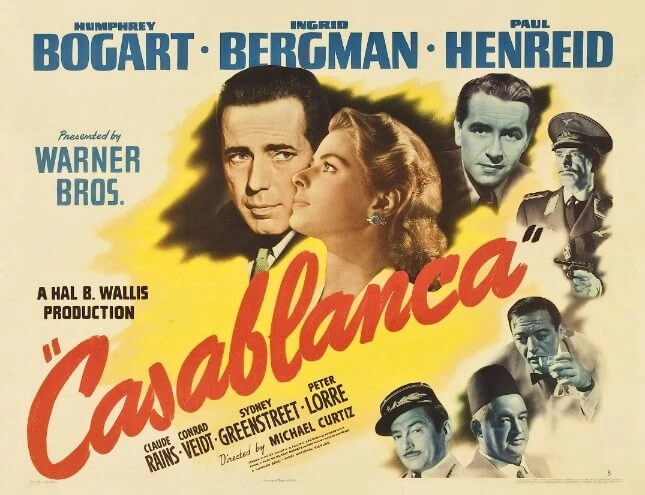
In the Mood for Love
is a poignant film that explores the emotional connection between two young individuals who, by coincidence, are both married. Living in adjacent apartments, they find their spouses frequently absent from home. As time passes, a deep emotional bond develops between the man and woman. Eventually, they discover that their spouses are involved in an affair with each other. Determined not to betray their partners as their spouses have, they navigate the complexities of their feelings while facing the challenges of life.
Directed by the renowned Wong Kar-wai, In the Mood for Love is considered one of South Korea’s most significant cinematic works. The film beautifully captures themes of love, longing, and fidelity against the backdrop of 1960s Hong Kong. Through its rich cinematography and nuanced storytelling, it delves into the intricacies of human relationships and the heartache that comes with unfulfilled desires.
The film’s narrative unfolds with Chow Mo-wan (played by Tony Leung) and Su Li-zhen (portrayed by Maggie Cheung) gradually growing closer as they share their experiences of betrayal. Their relationship is marked by subtlety and restraint, reflecting their internal struggles and societal expectations. The film’s aesthetic, characterized by its lush visuals and evocative soundtrack, enhances the emotional depth of their connection.Ultimately, In the Mood for Love is not just a tale of love but also a meditation on time, memory, and the choices we make in life. It remains a timeless classic that resonates with audiences around the world.
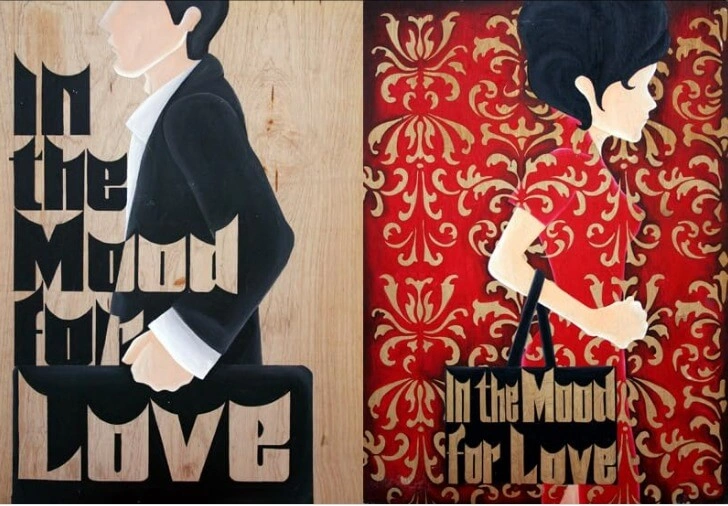
A Short Film About Love
A Short Film About Love is a 1988 Polish romantic drama directed by the acclaimed Krzysztof Kieślowski. The film tells the poignant story of a 19-year-old man named Tomek, who becomes infatuated with his neighbor, Magda, a woman in her thirties. Living in adjacent apartments in Warsaw, Tomek spends his nights secretly observing Magda through a telescope, captivated by her daily life and interactions.
Initially unaware of Tomek’s obsession, Magda eventually notices him. However, she is skeptical about love, believing it to be an illusion and equating it only with physical intimacy. As their paths cross, the narrative unfolds to reveal the complexities of their emotions and the impact of voyeurism on their relationship.
Tomek’s infatuation leads him to engage in increasingly desperate attempts to connect with Magda. He leaves fake postal notices in her mailbox to get her attention and even takes a job delivering milk to her apartment complex. The film explores themes of loneliness, desire, and the blurred lines between love and obsession.
As their relationship develops, Magda invites Tomek into her world, but their encounters are fraught with tension and misunderstanding. A pivotal scene occurs when they share an intimate moment that leaves Tomek feeling vulnerable and confused about his feelings. After an emotionally charged encounter, Tomek’s distress leads him to attempt suicide, prompting Magda to reevaluate her feelings for him.
The film culminates in a powerful exploration of love’s complexities. Magda ultimately recognizes the depth of her emotions for Tomek, realizing that love is not merely about physical attraction but also about connection and understanding. The final scenes poignantly illustrate how their lives are intertwined through longing and regret.
Kieślowski masterfully captures the essence of love as an intricate tapestry woven from desire, pain, and vulnerability. A Short Film About Love stands out as a significant work within Kieślowski’s oeuvre, showcasing his ability to delve into the human psyche and explore the multifaceted nature of relationships. This film is not only a reflection on romantic love but also a meditation on the human condition itself.
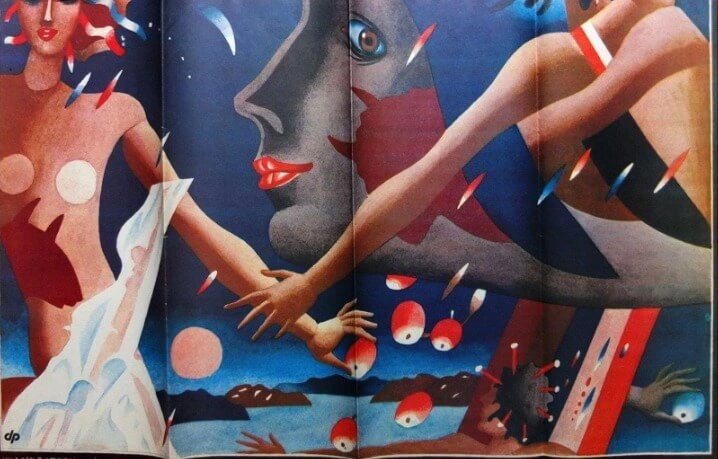
The English Patient
The English Patient is an epic romantic drama written and directed by Anthony Minghella, released in 1996. Set during World War II, the film follows the story of a pilot who survives the crash of a military plane and is rescued by Bedouins in the North African desert. Due to the psychological trauma he has endured, he suffers from amnesia and cannot remember his identity.
As he lies dying in an abandoned monastery in Italy, a young Canadian nurse named Hana, played by Juliette Binoche, takes on the responsibility of caring for him. Over time, a deep emotional bond develops between them, as Hana seeks to uncover the truth about his past through his fragmented memories. The patient, whose real name is László Almásy (portrayed by Ralph Fiennes), gradually reveals his tragic love story with Katharine Clifton (Kristin Scott Thomas), a married woman involved in a passionate affair with him.
Their romance unfolds through a series of flashbacks that depict their intense and forbidden love set against the backdrop of war. Almásy and Katharine’s relationship is characterized by longing and desire, but it is also fraught with complications and moral dilemmas. As they navigate their feelings for each other, they confront the realities of betrayal and loyalty, ultimately leading to heart-wrenching consequences.
The film explores themes of love, loss, and identity while examining how war impacts human relationships. The cinematography is stunning, capturing the beauty of the desert landscape and the emotional depth of the characters’ experiences. The score enhances the film’s poignant moments, creating an atmosphere that resonates with viewers.
The English Patient received critical acclaim upon its release and won nine Academy Awards, including Best Picture and Best Director for Minghella. It stands as a powerful testament to the complexities of love and memory, leaving a lasting impression on audiences worldwide.
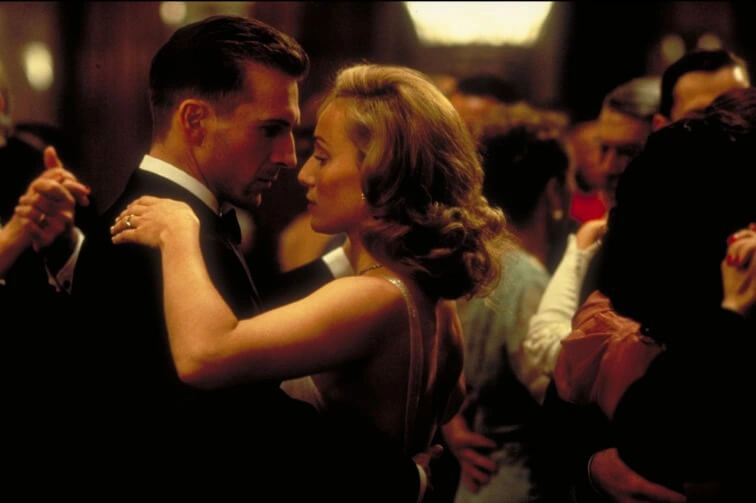
Eternal Sunshine of the Spotless Mind
Eternal Sunshine of the Spotless Mind is a romantic science fiction film directed by Michel Gondry, with a powerful screenplay written by acclaimed Hollywood screenwriter Charlie Kaufman. The story revolves around a young woman named Clementine, played by Kate Winslet, who seeks to erase her memories of her ex-boyfriend, Joel (Jim Carrey), after their tumultuous relationship ends.
In her quest to forget, Clementine visits Dr. Howard Mierwick, who runs a clinic specializing in memory erasure. However, as the procedure unfolds, it becomes clear that love cannot be so easily extinguished. Despite the erasure of their shared past, Joel and Clementine find themselves drawn to each other once again, highlighting the enduring nature of true affection.
The film intricately explores themes of memory, love, and identity through a nonlinear narrative that delves into the characters’ subconscious. As Joel undergoes the memory-erasing process, he experiences flashbacks of his time with Clementine, leading him to realize that he does not want to forget her after all. This emotional journey raises profound questions about the nature of love and the significance of our memories.
Eternal Sunshine of the Spotless Mind received widespread critical acclaim for its innovative storytelling, visual style, and performances, particularly those of Carrey and Winslet. The film won the Academy Award for Best Original Screenplay and is celebrated for its unique approach to romantic drama and its exploration of complex emotional landscapes. It remains a significant work in contemporary cinema, resonating with audiences through its poignant depiction of love’s challenges and triumphs.
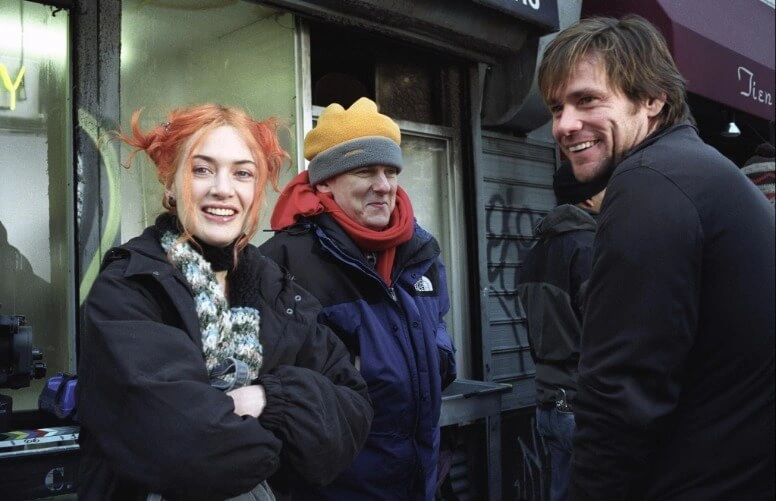
Midnight in Paris
Midnight in Paris is a romantic comedy directed by Woody Allen, recognized as one of the most beloved films in the genre. The story follows a man named Gil Pender, played by Owen Wilson, who travels to Paris with his fiancée, Inez (Rachel McAdams), and her wealthy parents. Captivated by the beauty and charm of the city, Gil finds himself enchanted by its artistic history.
One magical night, at the stroke of midnight, Gil mysteriously travels back to the 1920s, where he encounters a host of literary and artistic icons, including Ernest Hemingway, F. Scott Fitzgerald, and Pablo Picasso. This surreal experience allows him to explore his passion for the past and his longing for a different life. During this time, he meets Adriana (Marion Cotillard), a young woman who captures his heart and introduces him to the vibrant culture of that era.
As Gil navigates his newfound relationships and experiences, he begins to question his own life choices and the nature of love. Despite his attempts to escape his present reality, he learns that nostalgia can be both enchanting and deceptive. The film beautifully illustrates the idea that every generation longs for a time it perceives as better than its own.
Midnight in Paris is celebrated for its whimsical storytelling, stunning cinematography, and witty dialogue. It captures the essence of Paris as a city of dreams while exploring themes of love, nostalgia, and self-discovery. The film received critical acclaim and won the Academy Award for Best Original Screenplay, solidifying its place as a modern classic in romantic cinema. Through its enchanting narrative and memorable characters, Midnight in Paris invites viewers to reflect on their own desires and the allure of an idealized past.
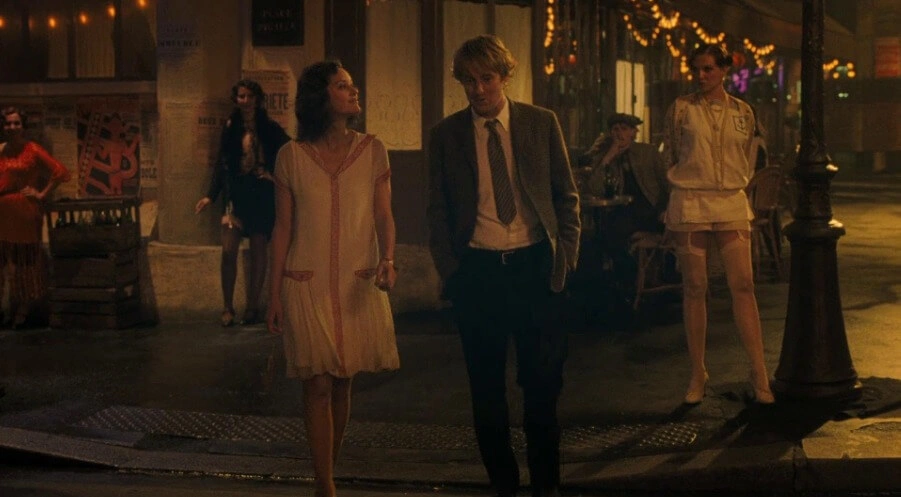
Love
Love is a renowned film directed by Michael Haneke, which won the prestigious Palme d’Or at the 2012 Cannes Film Festival. The narrative centers on an elderly couple, Anne and Georges, both retired music teachers, who face numerous challenges, including illness and loneliness.
As Anne suffers a debilitating stroke that paralyzes one side of her body, the film poignantly explores the depths of their relationship and the struggles they endure together. Haneke presents a raw and unflinching portrayal of love in its most vulnerable form, illustrating how deep emotional bonds can be tested by life’s harsh realities.
Through its powerful storytelling and exceptional performances by Jean-Louis Trintignant and Emmanuelle Riva, Love offers a profound reflection on the nature of love and commitment in the face of adversity. The film invites viewers to reconsider the complexities of romantic relationships, showcasing that love can persist even amidst suffering and hardship.
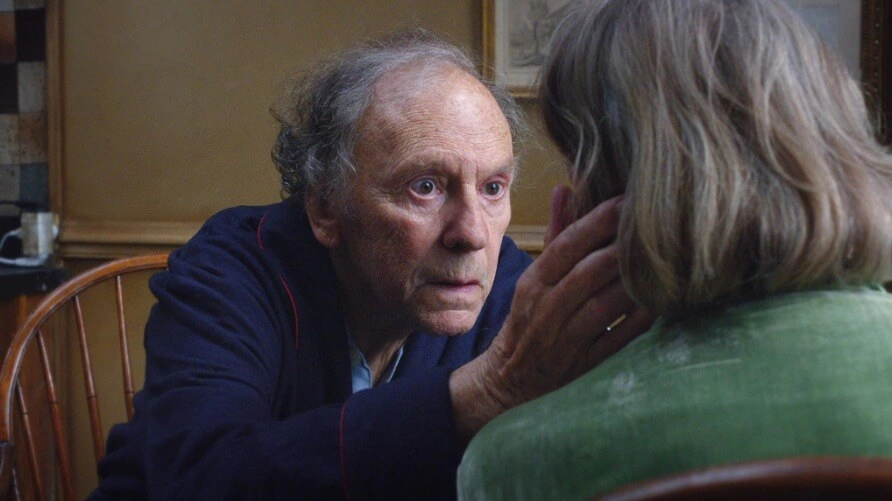
Before Sunrise Trilogy
The acclaimed Before Trilogy, directed by American filmmaker Richard Linklater, tells the story of a romantic connection between a young man and woman who meet by chance at a train station and fall in love. The first film, titled Before Sunrise, premiered in 1995. It was followed by Before Sunset in 2004 and Before Midnight in 2013. This beloved trilogy has received critical acclaim for its intelligent dialogue and deep exploration of emotions.
The main characters express their feelings and perspectives through engaging conversations, capturing the essence of love across different stages of their lives.The trilogy is characterized by its unique storytelling approach, with each film set nine years apart, allowing audiences to witness the evolution of Jesse (Ethan Hawke) and Céline (Julie Delpy) as they navigate the complexities of love and life.
Before Sunrise focuses on their initial encounter in Vienna, Before Sunset revisits them in Paris nearly a decade later, and Before Midnight finds them grappling with the realities of a long-term relationship in Greece. Each installment offers a profound reflection on romance, time, and the human experience, making it a standout series in cinematic history.
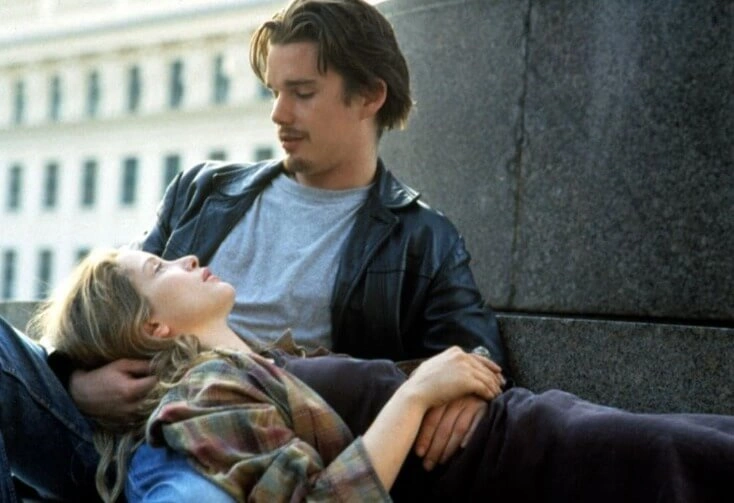
Titanic
Titanic is one of the most famous and highest-grossing romantic films in the world. Undoubtedly, many people, even those who are not avid cinema-goers, watched this film after its immense popularity soared. Upon its release, Titanic broke box office records and claimed the title of the highest-grossing film in history at that time. Written, directed, and produced by James Cameron, the film tells the tragic story of the RMS Titanic, which sank during its maiden voyage.
However, what sets Titanic apart from being merely a historical account is the poignant love story between two young characters, Rose and Jack. Despite their differing social classes and backgrounds, they fall deeply in love against the backdrop of the ship’s ill-fated journey. Their romance unfolds amidst the grandeur of the Titanic and ultimately faces the harrowing realities of disaster.
The film features outstanding performances by Leonardo DiCaprio as Jack Dawson and Kate Winslet as Rose DeWitt Bukater. Their chemistry and emotional depth resonate with audiences, making Titanic a timeless classic that continues to captivate viewers around the globe. Through its blend of romance and tragedy, Titanic explores themes of love, sacrifice, and the fleeting nature of life, solidifying its place as an iconic film in cinematic history.
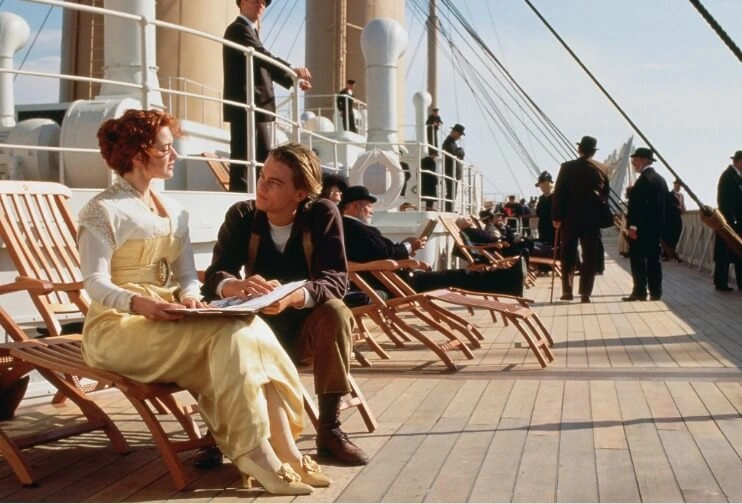
Gone with the Wind
Even if you are not a cinema enthusiast, you have likely heard of Gone with the Wind. This epic historical romance film, directed by Victor Fleming, is based on the novel of the same name by Margaret Mitchell. The story follows the life of a young woman named Scarlett O’Hara during the American Civil War and the Reconstruction era that follows.
The film features iconic performances by Vivien Leigh as Scarlett and Clark Gable as Rhett Butler. It explores themes of love, loss, and resilience against the backdrop of a society in turmoil. Critics argue that the title Gone with the Wind symbolizes the traditions and misconceptions of American society that were lost during the Civil War.
Scarlett’s journey is marked by her fierce determination to survive and thrive despite the challenges she faces, including personal tragedy and societal upheaval. As she navigates her complex relationships, particularly her unrequited love for Ashley Wilkes and her tumultuous marriage to Rhett Butler, the film delves into the intricacies of love and ambition.
Gone with the Wind remains a significant cultural touchstone, celebrated for its sweeping narrative and memorable characters. However, it also invites critical reflection on its portrayal of race and class dynamics in the Old South. Despite these complexities, it continues to be regarded as one of the greatest films in cinematic history, leaving an indelible mark on audiences worldwide.
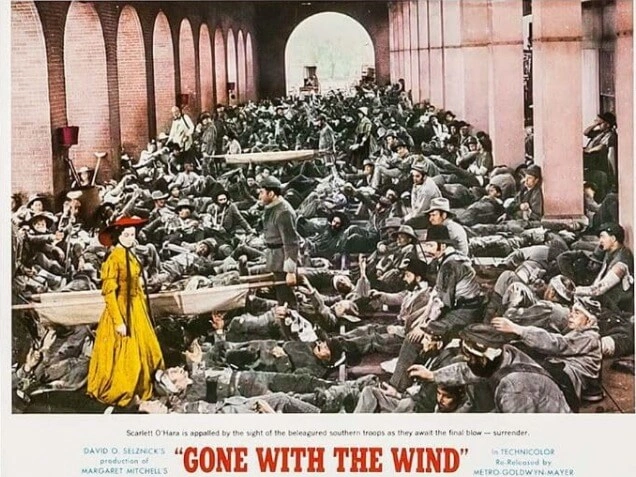
Last Updated on 28, November 2024 by admin | Published: 26, November 2024




